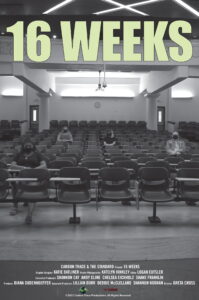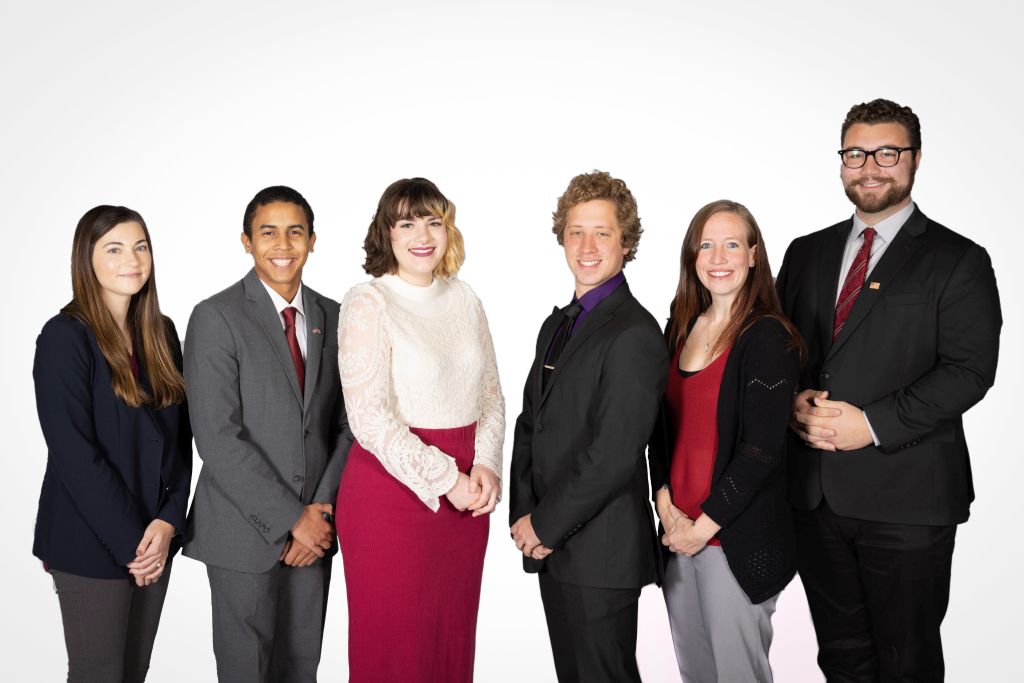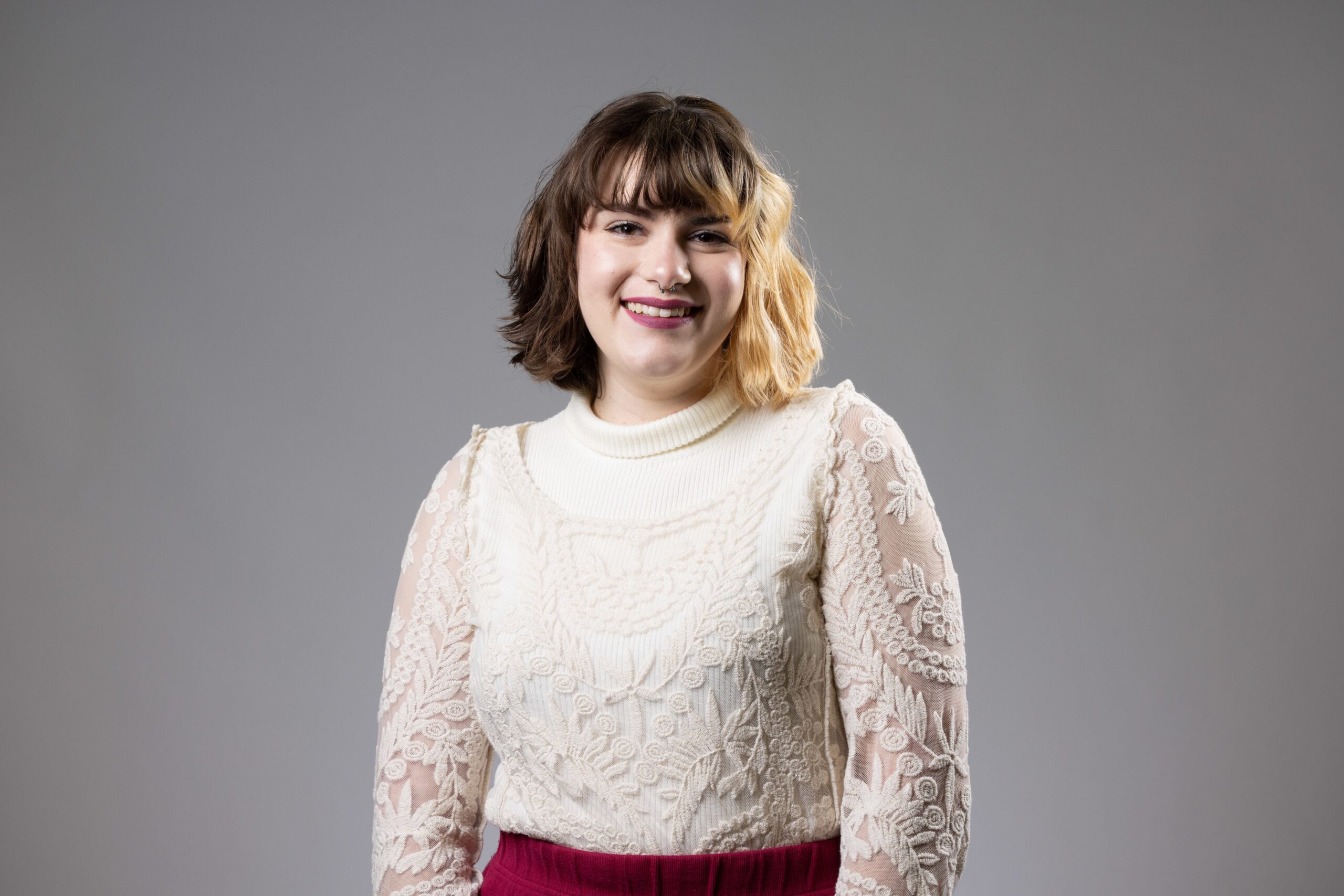Diana Dudenhoeffer shapes her future by combining her two passions: journalism and sustainability. As she enters into her second semester of her senior year at Missouri State University (MSU), she believes that although the two subjects may not seem simpatico, they’re actually two sides of the same coin.
During her sophomore year, Dudenhoeffer began her journey with The Standard, MSU’s student-run newspaper, as copy editor for the sports section. Although she didn’t consider herself a sports buff, the skills of copy editing and the thrills of the busy newsroom had Dudenhoeffer hooked.
Eventually, Dudenhoeffer began expanding her passion for journalism beyond the written word and started experimenting with audio journalism. In February 2020, she started a podcast just before the world was thrown into chaos with the COVID-19 pandemic. As a way to adapt to the changes the pandemic brought with it, The Standard shifted to a more digital-forward approach to delivering news.
This wasn’t an entirely new concept for The Standard. The newspaper had been in the process of transitioning to an online-first format for several years. Rather than calling it an obstacle, Dudenhoeffer described COVID-19 as a catalyst for The Standard. It encouraged the organization to reevaluate the priorities of reporting and copy editing in the digital age. Dudenhoeffer became the digital editor in May 2020 so much of the responsibility of navigating this shift into an online format fell to her.
“Journalism is a profession of compassion and so many aspects of compassion go hand in hand with sustainability.” —Diana Dudenhoeffer
Nowadays, The Standard has fully embraced the online-first mentality. The newspaper’s regularly published content is released on its website and social media accounts, while print publications are reserved for specialized topics, such as homecoming or graduation news. Although there’s no denying that the publishing world has shifted to a digital mindset, Dudenhoeffer expressed her affinity for the printed word.
“One of the biggest reasons I still take print very seriously is just how fun it is to get to see your name printed on a piece of paper. That has a lot of value,” she said.
It wasn’t long before the position of editor-in-chief caught her eye. As she worked alongside the editor-in-chief at the time, Greta Cross, Dudenhoeffer began to understand the value that management style has on a team. Her approach to leading a newsroom, she described, is being student-centered when it comes to decision making and emphasizing the importance of excellence.
“We’re a student newspaper so I put a lot of emphasis on my writers to have their eyes and ears open to things happening on campus,” Dudenhoeffer said.
Dudenhoeffer sees her role as editor-in-chief as a way to bridge the gap between the reporter and the reader. She wants to accomplish two things as editor-in-chief: 1) create quality journalism that supports her community and serves her readers, and 2) foster an environment where a student can become the best reporter that they can be. She notes that many of her reporters started with no baseline when it came to journalism but, to her, that didn’t matter. What was important was giving her writers the tools, resources, and freedom to explore their writing style and shape their voice in a way that best served them.
“I want to empower my team.” —Diana Dudenhoeffer
From freshmen to seniors, students studying English to sustainability majors or minors, like Dudenhoeffer herself, The Standard helps students build relevant skills no matter what they’re studying.
To Dudenhoeffer, journalism is a profession that requires someone to explore and become proficient in many different subjects of the world without actually studying the discipline. It’s taking complicated nuanced information gathered from interviews and research and turning it into a digestible article that the common reader can understand.

When she isn’t reporting the news of MSU’s campus and the wider Springfield area, she’s using her storytelling skills to create a more compassionate world. Her vision for journalism is one that puts sustainability and empathy at its forefront.
In August 2020, Dudenhoeffer was invited to work on 16 Weeks, a social media documentary that covers the lives of half a dozen MSU students during the 2020 fall semester. It was executive produced by MSU faculty member Dr. Andrew Cline’s nonprofit production organization, Carbon Trace Productions.
“There are so many different attitudes towards the pandemic. We wanted to show a brutally honest perspective of students trying and struggling through a COVID-19 semester,” Dudenhoeffer explained.
The idea was to capture an intimate glimpse into the pandemic from a student perspective. Student vloggers were asked to film themselves for 16 weeks doing anything relevant to student life during the pandemic. Whether that meant getting lunch with friends, attending classes over Zoom, or taking a COVID-19 test, the film sought to show day-to-day activities through the pandemic lens.
In the fall of 2021, Dudenhoeffer was nominated to be a Citizen Scholar, an annual award presented by the MSU Board of Governors to recognize students who exemplify the goals of the public affairs mission. Recipients were invited to a banquet dinner to celebrate their achievements.

As a soon-to-be-graduate, Dudenhoeffer sees her future as one with many unknowns but many possibilities, and journalism and sustainability have helped her understand her place in the world.

